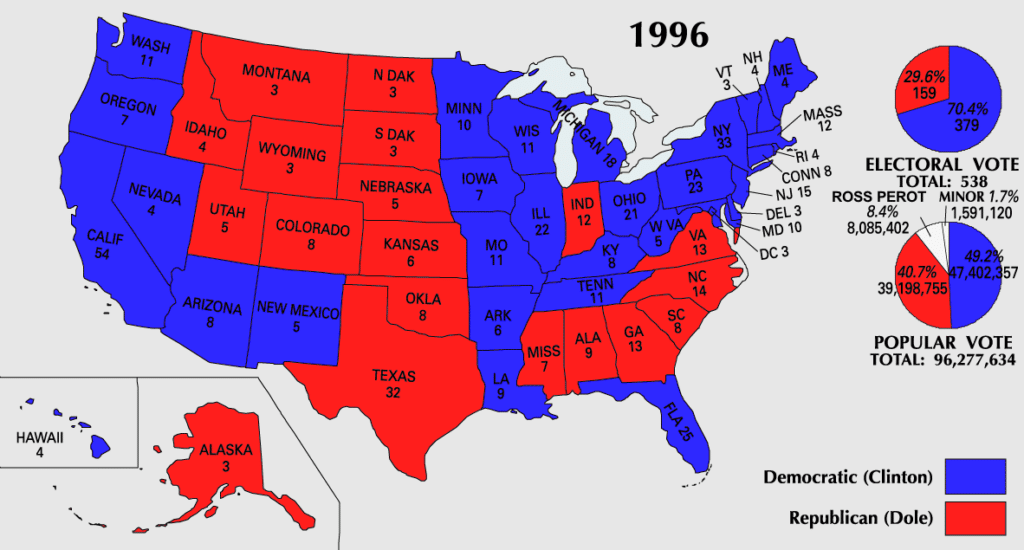The Presidential Election of 1996 would be the last presidential election in the 20th century.

During the election of 1992, President Bill Clinton emerged from the Democratic Primary as a dark horse and was able to relate well with the citizens of the United States. He had been a moderate to conservative Governor of Arkansas prior to becoming president but had moved more toward the left during his early years as president.
This caused what became known as the Republican Revolution, where the Republicans took control of the House of Representatives and the Senate and prepared an aggressive agenda to move America back to the right.
It looked as if the Republicans might be able to take the White House, but President Clinton pivoted to the center in preparation for the upcoming election.
Candidates were as follows:
Republicans: Bob Dole and Vice President Jack Kemp
Democrats: Bill Clinton and Vice President Al Gore
Platforms
Republicans: After taking the House and Senate, the Republicans had the momentum, but Bill Clinton was well-liked by the public. After Bob Dole was given the nomination, the Republicans focused on a tax cut of 15% across the board, attacked Clinton as a "bridge to the past," and claimed he would "blow a hold in the deficit."
Democrats: Bill Clinton argued that Bob Dole would take from Medicare and Social Security to fund his ideas. While he did not focus on Bob Dole's age, it did become a negative for Bob Dole that would help Bill Clinton during this time. Clinton also ran on his record as a moderate and how he had successfully balanced the budget.
Outcome
President Clinton's campaign advisor was Dick Morris, who ran an exceptional campaign. Due to Clinton winning the nomination early, he was able to begin attacking his opponents over the summer and begin to frame them how he wanted.
The Republicans tried to argue that they were going to "blow a hole through the deficit." However, Clinton successfully parried these attacks by pointing out he had already halved the deficit and balance the budget during his first two terms.
On Election Day, Bill Clinton took 49% of the popular vote and 70% of the Electoral College. His overwhelming victory was due to his ability to pivot and pull in moderate voters.
He would go on to finish out the century, but his second term would be tarnished with controversies and allow for Republicans to surge again in the election of 2000.
